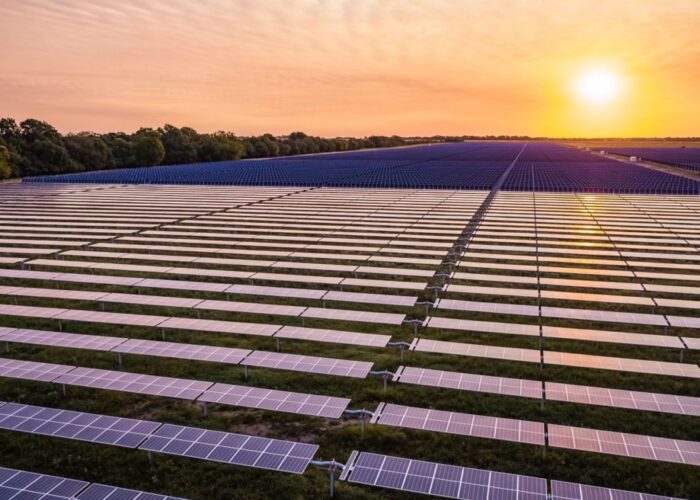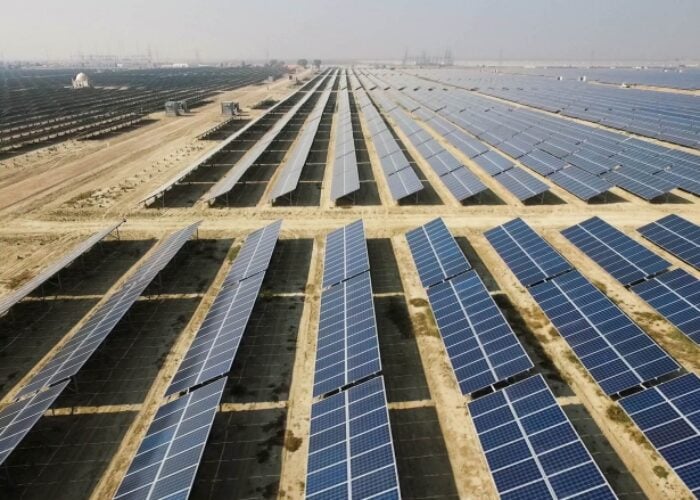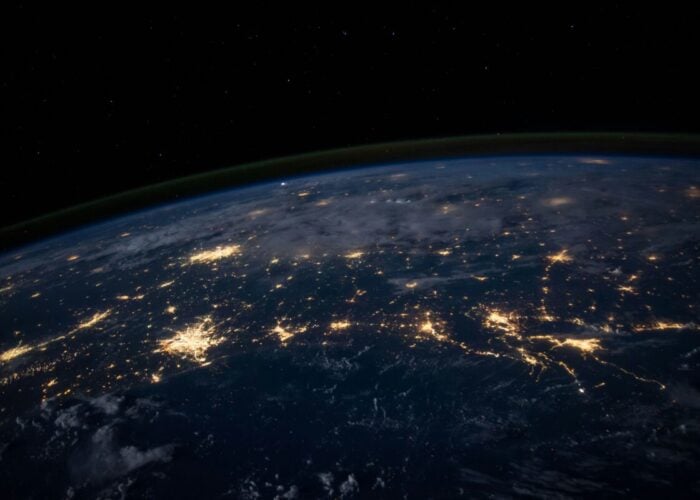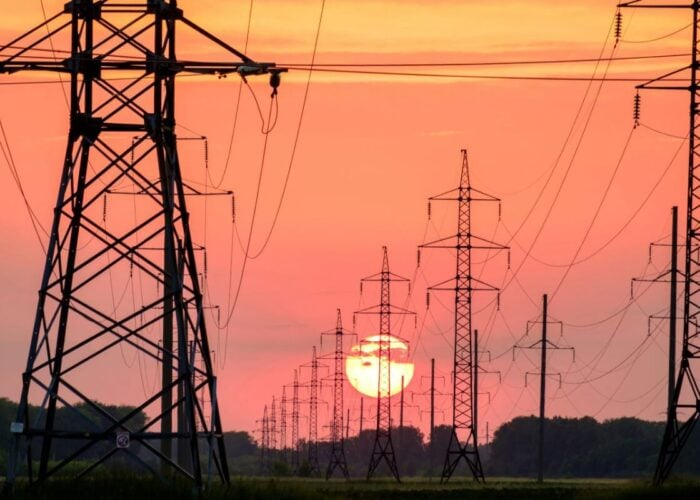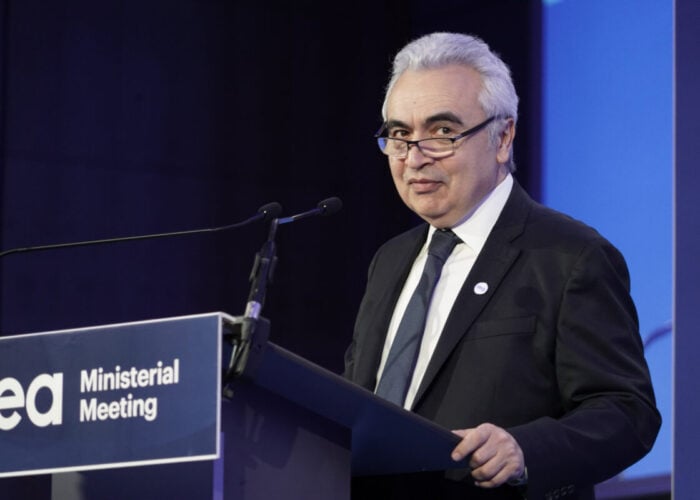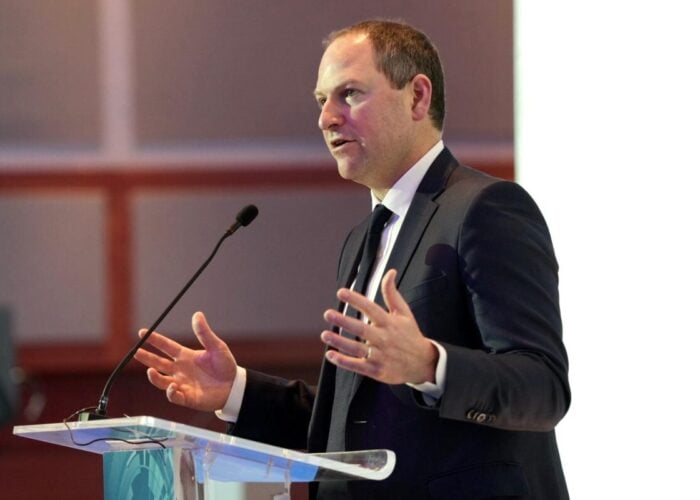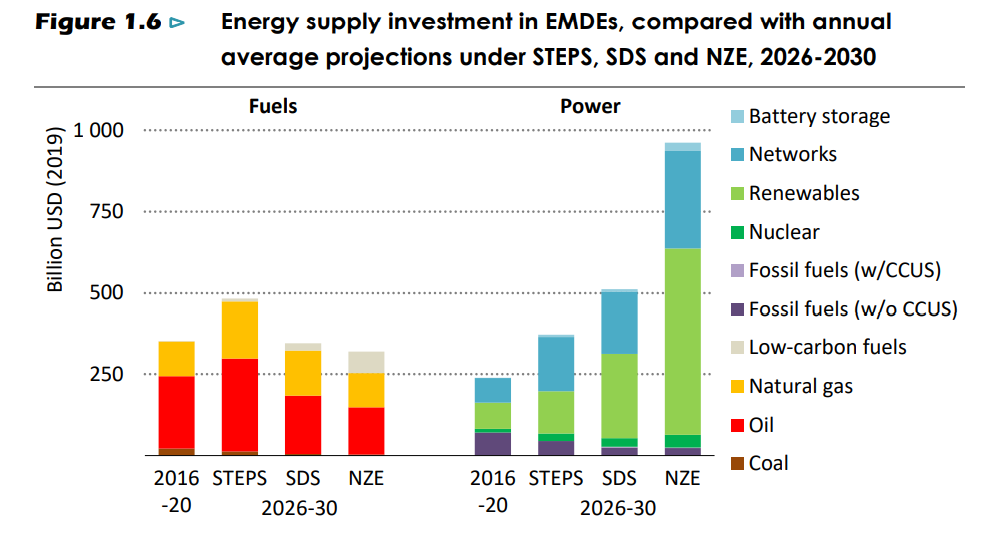
Green energy investments in developing countries will need to reach US$1 trillion within the next nine years for the world to reach net zero emissions by 2050, according to the International Energy Agency (IEA).
A new report from the agency in collaboration with the World Bank claims that investment in developing economies must rise seven-fold from US$150 billion last year to more than US$1 trillion annually by 2030 as electricity consumption in those regions continues to grow.
Unlock unlimited access for 12 whole months of distinctive global analysis
Photovoltaics International is now included.
- Regular insight and analysis of the industry’s biggest developments
- In-depth interviews with the industry’s leading figures
- Unlimited digital access to the PV Tech Power journal catalogue
- Unlimited digital access to the Photovoltaics International journal catalogue
- Access to more than 1,000 technical papers
- Discounts on Solar Media’s portfolio of events, in-person and virtual
The majority of this would need to be allocated to renewable power, energy efficiency and electrification, accounting for more than 70% of spending between 2026 and 2030 according to IEA’s net zero by 2050 projection. Part of this would also require a US$35 billion annual spend by 2030 to improve access to electricity for the 785 million people who live without it today.
Unless more action is taken, carbon emissions from power generation in emerging economic that are mostly in Asia, Africa and Latin America could grow by 5 billion tonnes over the next 20 years.
The IEA’s report looked at separate scenarios based on current government policies on renewables deployment (Stated Policies Scenario, or STEPS), capacity growth in-line with the Paris Agreement (Sustainable Development Scenario, or SDS), and achieving global net-zero emissions by 2050.
It found that a diverse range emerging nations that includes Thailand, Colombia, Uganda and Poland are collectively home to two-thirds of the global population and could account for 90% of emissions growth in future, but currently only 20% of investment in renewables and low carbon technologies.
In order to reach net zero emissions worldwide by mid-century, emerging markets and developing economies (EMDEs) would need to attract 40% of global spending on solar PV and wind installations by the end of the decade, 25% of new battery energy storage, and roughly 20% of investment in low-carbon fuels.
Faith Birol, the IEA’s executive director, said: “There is no shortage of money worldwide, but it is not finding its way to where it is most needed.
“Governments need to give international public finance institutions a strong strategic mandate to finance clean energy transitions in the developing world.”
Annual energy investments in EMDEs have fallen by roughly 20% since 2016, according to the report, 70% of which comes from a reduced spend on oil and gas power plants, while the pandemic has also delayed investments in new clean energy systems. Clean energy spending in these regions fell by 8% to less than US$150 billion last year, and has only partially rebounded since, IEA said.
“EMDEs are set to account for the largest source of emissions growth in the coming decades,” it said, “unless sufficient action is taken to transform their energy systems.”
The findings come just one week after the IEA published a separate report that claims that solar PV installations will be the main driver of clean energy investment this year, with renewables set to account for 70% of the US$530 billion expected to be spent on new power generation capacity this year.

